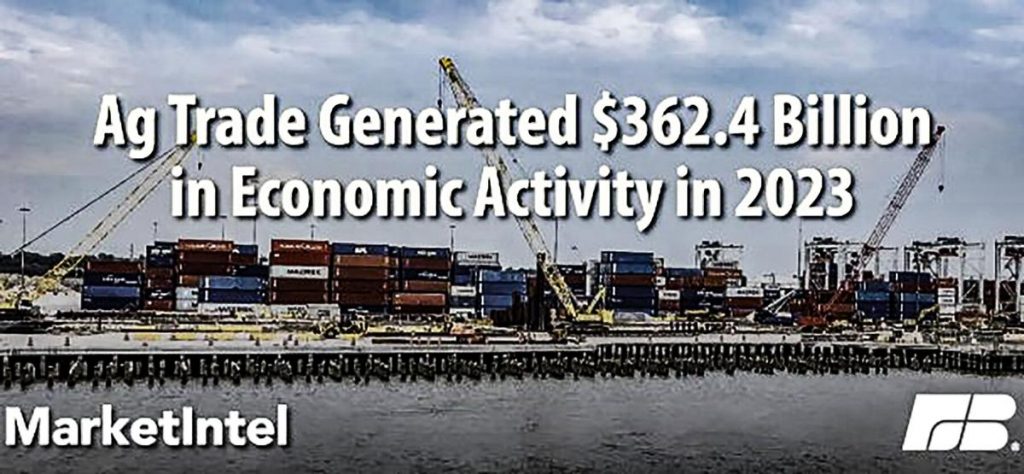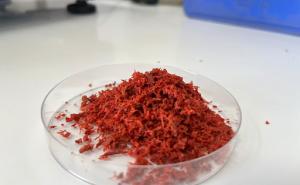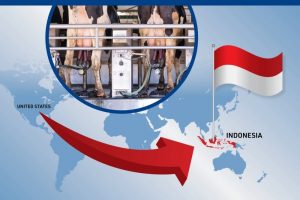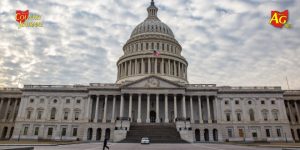
Exports Power Economy, Battles Mount Against Non-Tariff Barriers.
Agricultural trade is a cornerstone of the American economy, playing a vital role in supporting U.S. farmers and driving economic growth nationwide. With over 20% of the nation’s agricultural production sold abroad, exports are a critical component, generating $2.06 in additional economic activity for every dollar of agricultural exports. This dynamic relationship extends far beyond the farm, benefiting sectors such as transportation, logistics, and port operations across the entire agribusiness supply chain.
In 2023, U.S. agricultural exports reached a staggering $175.5 billion, catalyzing an additional $186.9 billion in related economic activity, culminating in a total output of $362.4 billion. This robust export performance directly supported 1.05 million full-time jobs across the U.S. economy, with approximately 469,000 on farms and over 580,000 in related sectors like trucking, warehousing, processing, shipping, and trade services. This underscores how farm exports are a national economic engine.
Despite the positive impact of trade, non-tariff barriers (NTBs) continue to significantly limit U.S. farmer ability to compete in global markets. Unlike tariffs, NTBs are often disguised as complex rules, regulations, or standards (e.g., differing food-safety or biotechnology standards, non-scientific sanitary rules, import quotas) that hinder market access. For instance, the European Union restricts imports of genetically modified crops and certain U.S. meat products, regardless of scientific safety assessments, directly impacting U.S. agricultural exports and overall dairy economics.
As a critical August 1 tariff deadline approached, the U.S. administration shifted its trade policy, introducing reciprocal tariffs and a 10% baseline tariff on most imports, though enforcement of reciprocal tariffs was temporarily paused. This strategy aimed to incentivize negotiations for new trade terms. Notably, recent trade pacts announced under Executive Order 14316—though informal and subject to change—have emerged, including deals with the United Kingdom, Vietnam (offering zero-tariff access for U.S. dairy), Japan, and Indonesia, aimed at reducing tariffs and non-tariff barriers and expanding market access.
These emerging trade deals, along with ongoing negotiations, are critical for strengthening U.S. agriculture and expanding global market opportunities for farmers and ranchers. While progress on reducing non-tariff barriers is being made (e.g., Australia easing beef import restrictions), challenges remain. Ultimately, consistent and robust trade is essential for the national economy and the long-term economic sustainability of family farms and rural communities across the United States.
Source: AgUpdate: Ag trade supports farms, communities
You can now read the most important #news on #eDairyNews #Whatsapp channels!!!
🇺🇸 eDairy News INGLÊS: https://whatsapp.com/channel/0029VaKsjzGDTkJyIN6hcP1K






















